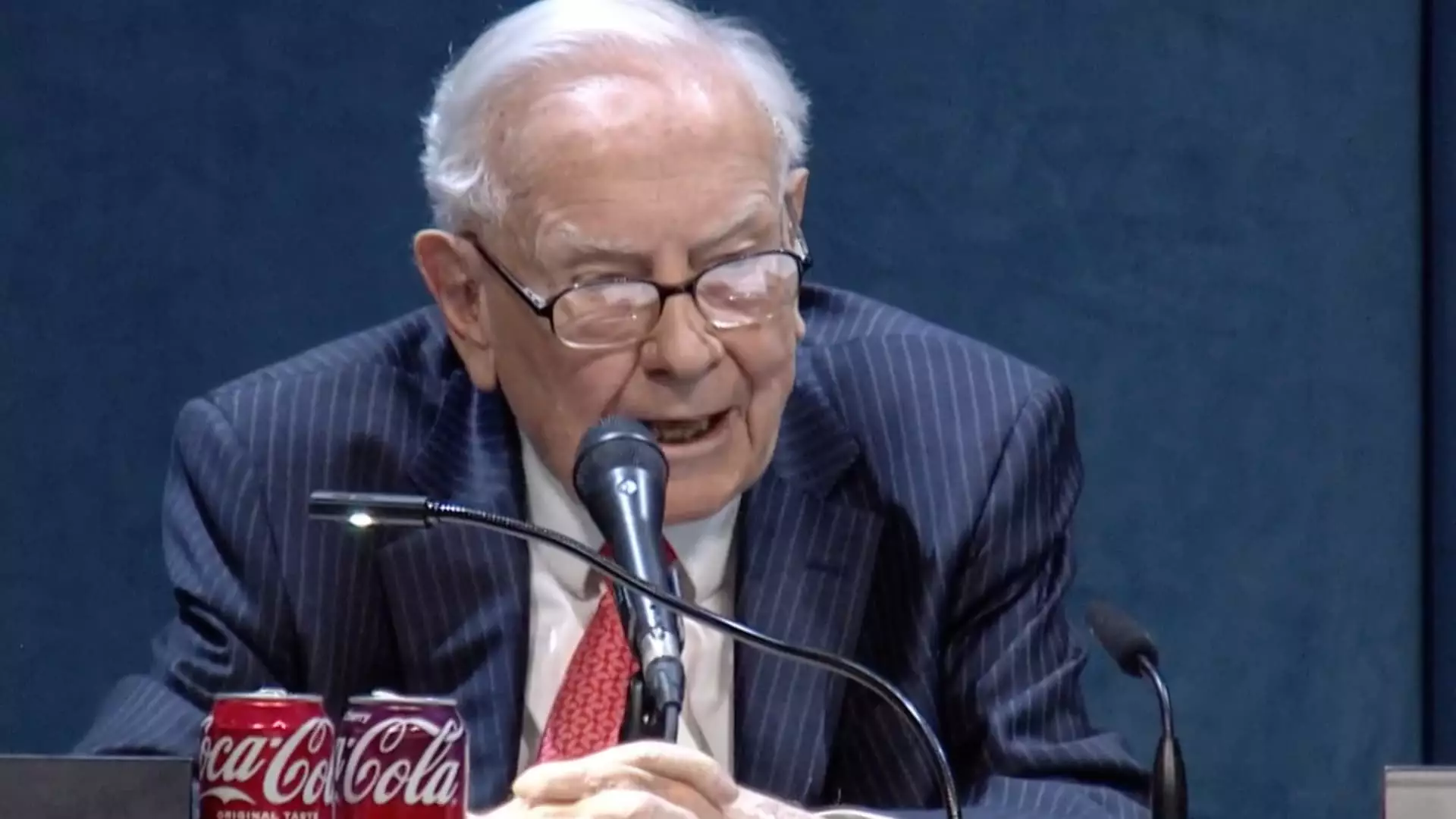The renowned investor Warren Buffett recently delivered a sobering assessment of America’s current trade policies, particularly criticizing the punitive tariffs implemented by the Trump administration. Although he did not explicitly name the President, his sentiments were unmistakably aimed at these hardline trade practices. Buffett emphasized that “trade should not be a weapon,” and warned of the grave consequences of using it as such. This speaks to a larger issue at play—an urgent need for a reassessment of the economic isolationism that has pervaded the United States under Trump’s leadership.
Buffett’s assertion that protective tariffs are akin to “an act of war” resonates deeply in today’s geopolitical climate. Countries have long been connected by the intricate web of trade relations, and disrupting these connections can have far-reaching implications. Isolationist rhetoric obscures the reality: in an era defined by globalization, prosperity cannot be achieved in a vacuum. The disturbing notion that America’s competitiveness hinges on making others weaker is fundamentally flawed and shortsighted.
The Paradox of Protectionism
As the conversation surrounding trade intensifies, it’s vital to unpack the paradox inherent in protectionist policies. For all his bluster about “America First,” the reality is that tariffs have led to increased prices for everyday consumers. The notion that closing off markets will somehow benefit workers in the U.S. is simplistic at best and economically ignorant at worst. Rather than shielding American jobs, these harsh measures risk stifling economic innovation. Companies stifled by tariffs may find themselves unable to compete globally, ultimately leading to job losses—not gains.
The unintended consequences of tariffs extend beyond mere economic metrics. Trade also fosters relationships and mutual understanding among nations. In Buffett’s words, as the world becomes more prosperous, so too does the United States. Viewing trade strictly through a lens of competition fosters animosity rather than collaboration. A generation focusing on building walls may inadvertently sow the seeds of division and conflict among nations that once found common ground.
A Call for Pragmatic Policies
Buffett embodies a liberal ethos that emphasizes pragmatism, a quality desperately needed in current discourse. His call for cooperation rather than combativeness should resonate not just with investors, but with ordinary citizens who rely on a healthy economy. Investing in a global framework for trade is not merely about economics; it’s a moral imperative, fostering peace and reducing the potential for conflict. Everyone, from students to seasoned investors, should advocate for a more constructive approach to trade policy. The focus should shift from “us vs. them” to collective progress—not out of altruism, but out of sheer self-interest.
Notably, tariffs have already bred retaliatory measures from other nations—China’s levies serve as an exemplar. This back-and-forth escalates tensions, creating an unstable environment where uncertainty rules. For investors, as Buffett has illustrated, such instability complicates decision-making and deters much-needed investment. Closing doors only invites retaliation; opening them can lead to unprecedented economic opportunity.
The Future of American Economic Strategy
The landscape of global commerce is evolving rapidly, and America needs to adapt to remain competitive. Instead of leaning into isolationist policies that stifle growth, a re-definition of what it means to engage globally is imperative. This means fostering an environment where innovation flourishes through collaboration.
The current administration appears out of touch when it champions policies that risk alienating potential allies. Global leadership is not about asserting dominance; it’s about wielding influence wisely and constructively. For the candidates gearing up for future elections, embracing a more progressive and open trade policy should be a central tenet of their platforms. The long-term benefits of collaboration can yield dividends far greater than the short-lived gratification of punitive tariffs.
As voices like Buffett’s become increasingly vital in the national conversation, it is essential for society to reflect on the realities articulated by those who understand the complex dynamics of international trade. The future lies not in walls built to keep others out, but in bridges that connect us all. The cost of isolationism is far too high, and only through unity and cooperation can we navigate the complex economic landscape ahead.

